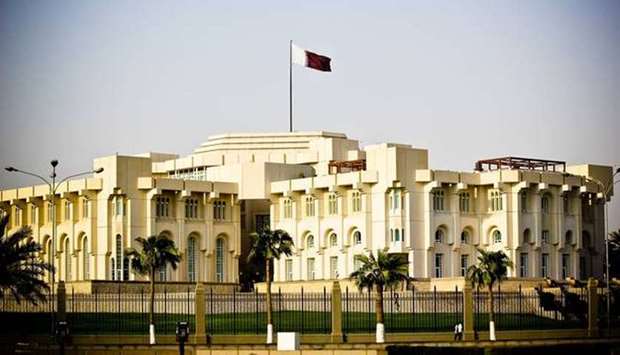The Ministry of Transport and Communications (MoTC)'s strategy was outlined before the Cabinet on Wednesday, the official Qatar News Agency reported.
This came at the Cabinet's regular meeting at the Amiri Diwan, which was chaired by HE the Prime Minister and Minister of Interior Sheikh Khalid bin Khalifa bin Abdulaziz al-Thani.
Following the meeting, HE the Minister of Justice and Acting Minister of State for Cabinet Affairs Dr Issa Saad al-Jafali al-Nuaimi issued a statement on the details of the proceedings.
Based on the directives of HE the Prime Minister and Minister of Interior on providing the Council of Ministers with plans related to the competencies of ministries and other government agencies, public bodies and institutions, including all implementation programs and projects, the specified timetable for completion as well as standards and indicators for measuring performance progress in line with the comprehensive development vision, Qatar National Vision 2030, in addition to highlighting any partnership projects between the public and private sectors, if any, HE the Minister of Transport and Communications Jassim Seif Ahmed al-Sulaiti gave a presentation on the detailed plan for the strategy of the Ministry of Transport and Communications.
The strategic objectives of the sectors and administrative units of the ministry are: ease of access, financial and environmental sustainability, security and safety, smooth movement, economic development, establishment of a flexible, smart and integrated infrastructure, empowering a digitally advanced workforce and society, enhancing confidence and digital security, developing the smart government agenda and using technology to develop a regionally competitive smart economy.
The ministry worked to supervise and implement projects of national priority in order to achieve the plans of Qatar National Vision 2030, and has also adopted an additional set of projects stipulated in the Second National Development Strategy to support the development of the economic infrastructure, achieve economic diversification and private sector development, support institutional development, service provision, and financial management.
Among these projects:
*Implementing the expansion phases of Hamad Port through the establishment of the second container terminal and opening of direct and indirect shipping lines, with many seaports of the global maritime traffic in order to achieve the State's strategy in external expansion, as well as attracting investments and trade.
*Hamad International Airport expansion, which aims to increase the airport's capacity to reach 53mn passengers annually.
*Electrical transformation projects for buses and electric vehicles, which the ministry is currently carrying out in co-operation with the authorities concerned. This is to support Qatar's steps towards a green future, achieve an economic and environmental balance to ensure the sustainability of infrastructure projects for the transportation sector, as well as support economic growth and development of transportation by employing alternative and clean energy according to the latest environmentally friendly global systems.
*A field survey of road assets. Work on this project is carried out by using the latest and advanced technology to build an information system on its level of performance and the impact of the environment and climate on it.
*Qatar's National Artificial Intelligence Strategy, which aims to adopt the artificial intelligence and harness it to secure the economic and strategic future of Qatar as is envisaged by Qatar National Strategy 2030.
*The Qatar Smart Programme (TASMU) is designed specifically to accelerate the achievement of all pillars of the Qatar National Vision 2030. The programme will serve as a platform for the realisation of a digital economy and a smart future. The plan of TASMU programme will be implemented in partnership with the private sector to create and develop smart Qatar services in accordance with a contemporary regulatory framework that promotes openness, stimulates innovation and supports the development of safe and reliable smart services, as well as attracts talents and develops skills.

